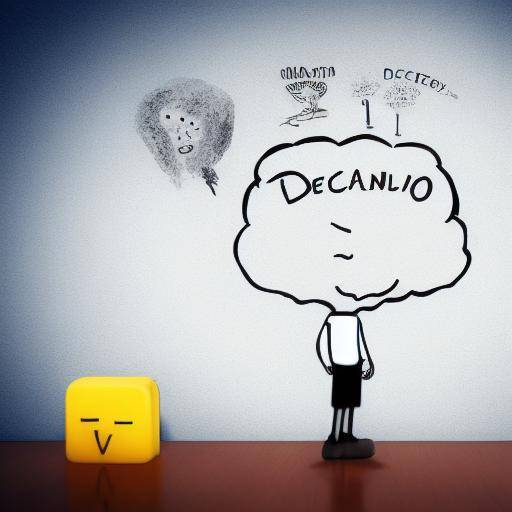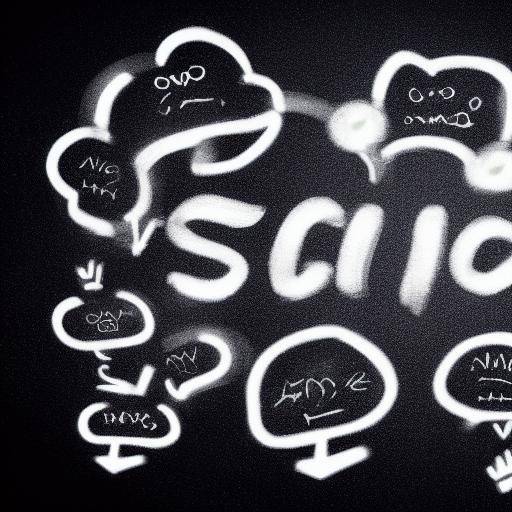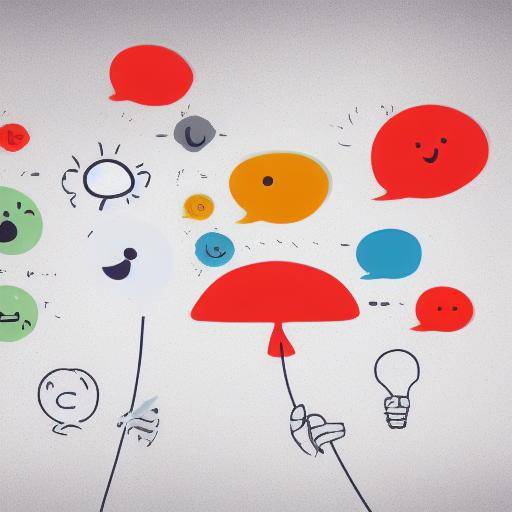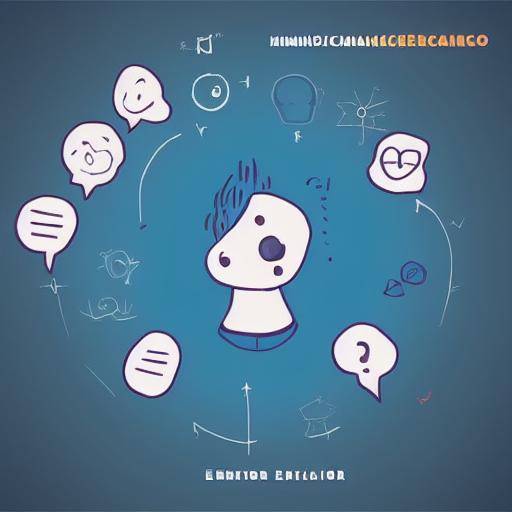
The importance of healthy relationships in emotional well-being has been a matter of interest over the years. Emotional intelligence emerges as a fundamental tool for fostering these relationships, not only with others, but also with oneself. In this article, we will explore in depth the intersection between healthy relationships, emotional intelligence and emotional well-being, as well as practical strategies to apply these concepts in everyday life.
Introduction
Healthy relationships play a crucial role in our personal happiness and satisfaction. They are fundamental not only in the personal sphere, but also in the professional, contributing to a great extent to our quality of life. On the other hand, emotional intelligence, a concept coined by Daniel Goleman, has gained relevance as the ability to recognize, understand and manage our own emotions, as well as those of others. These two dimensions are intertwined significantly, directly influencing our emotional well-being. Throughout this article, we will explore how emotional intelligence can be used as an effective tool to foster healthy relationships, thus supporting our overall emotional well-being.
History and context
The concept of healthy relationships and their impact on emotional well-being dates back to ancient times. From Greek philosophy to contemporary psychological theories, the importance of interpersonal interactions in mental and emotional health has been largely explored. Emotional intelligence, on the other hand, arises in the 1990s as a response to the need to properly understand and manage emotions in an increasingly interconnected world. Over the years, these concepts have evolved and intertwined, leading to integrated approaches to fostering healthy relationships and emotional well-being.
In-depth analysis
Current benefits and challenges
Healthy relationships, based on honesty, empathy and mutual respect, provide a safe environment for expressing emotions, resolving conflicts and fostering personal growth. However, maintaining healthy relationships also entails challenges, such as effective communication, conflict management and setting limits. Emotional intelligence offers significant benefits in managing these difficulties, allowing us to understand our own emotions, recognize the emotions of others and manage interactions more effectively.
Comprehensive review
The practical approach of emotional intelligence allows us to develop skills that enrich our relationships. Through self-consciousness, self-regulation, motivation, empathy and social abilities, we strengthen the basis of our interactions, thus broadening the path to healthier relationships. These skills enable us to manage stress, establish clear limits and encourage assertive communication, fundamental components to cultivate positive and satisfactory relationships.
Various perspectives and views
Several experts address the importance of emotional intelligence in the context of healthy relationships. From clinical psychologists to life coaches, each highlights the importance of understanding and managing our emotions to foster more meaningful and healthy relationships. Specific approaches and strategies are also discussed to apply emotional intelligence in different contexts, from the family to the workplace.
Comparative analysis
Healthy relationships and emotional intelligence share a fundamental driving thread: the direct relationship with emotional well-being. While healthy relationships focus on interactions with others, emotional intelligence focuses on both interpersonal relationships and relationships with oneself. Both concepts are complemented, promoting an emotional balance that positively impacts our well-being.
Practical advice and recommendations
Strategies to apply emotional intelligence in relationships
- Cultivate empathy: Practicing active spit and showing genuine interest in the emotions of others strengthens emotional connection in relationships.
- Effective communication: Developing clear and assertive communication skills helps to avoid misunderstandings and unnecessary conflicts.
- Self-knowledge: Understanding our own emotions, behavior patterns and sensitive points enables us to manage our reactions and contribute to more harmonious relationships.
Industry reflections and expert opinions
Several experts in psychology, interpersonal relationships and emotional well-being have expressed the importance of using emotional intelligence as a tool to foster healthy relationships. The ideas and reflections of these professionals provide valuable insights into the practical application of emotional intelligence in different contexts, as well as the positive impact it can have on the quality of human interactions.
Case studies and practical applications
Through real case studies, it is possible to see how the implementation of emotional intelligence in relationships leads to concrete results. From working environments to family dynamics, these examples illustrate how emotional intelligence skills contribute to healthier relationships, promoting conflict resolution constructively and nurturing stronger emotional connections.
Future trends and predictions
The integration of emotional intelligence in various areas, including education, psychology, leadership and personal well-being, points to a future in which healthy relationships are considered not only as a vital component of emotional well-being, but also as a fundamental pillar for personal and professional success. The focus on the development of emotional skills is expected to continue to grow, thus promoting a culture of human values and authentic relationships.
Conclusion
Promoting healthy relationships through emotional intelligence is a path to a more full and fulfilling life. By developing our capacity for emotional understanding and managing our own emotions, we not only nurture our relationships with others, but also cultivate a healthier relationship with ourselves. Emotional intelligence provides us with powerful tools to navigate the complexities of human interactions, thus enriching our emotional well-being.
FAQs
Why is it important to foster healthy relationships?
Healthy relationships contribute to our emotional well-being by offering a meaningful support, understanding and connection environment. These relationships strengthen our self-esteem, reduce stress and promote a sense of belonging and happiness.
How does emotional intelligence benefit interpersonal relationships?
Emotional intelligence enables us to understand and manage our emotions, as well as to perceive and respond to the emotions of others. These skills are fundamental to establishing an empathic and authentic dialogue in relationships.
What emotional intelligence skills are most relevant to healthy relationships?
Empathy, emotional self-regulation, assertive communication and conflict management are key emotional intelligence skills that contribute significantly to healthier relationships.
How does emotional intelligence influence personal well-being?
Emotional intelligence promotes greater emotional awareness, ability to manage more positive stress and interpersonal relationships, which in turn impacts positively on overall well-being and quality of life.
How can emotional intelligence be applied in conflict situations in relationships?
Emotional intelligence allows us to address conflicts from an empathic and constructive perspective, fostering open communication, mutual understanding and the search for collaborative solutions.
What is the long-term impact of healthy relationships on emotional well-being?
Healthy relationships contribute to greater personal satisfaction, lasting emotional support, resilience at difficult times and a sense of meaningful membership and connection, thus promoting sustainable emotional well-being.
In short, the cultivation of healthy relationships through emotional intelligence is a transformative path that enriches our quality of life and emotional well-being in all aspects. By integrating emotional intelligence skills into our daily interactions, we can build more meaningful, authentic and nutritious relationships, both with others and with ourselves.
Conclusion
In the current era, fostering healthy relationships through emotional intelligence is presented as a crucial pillar for emotional well-being. By understanding the importance of emotional intelligence and its application in our personal and professional relationships, we can strengthen meaningful links, manage conflicts constructively and cultivate an environment that nourishes our happiness and personal satisfaction.
With the tools provided by emotional intelligence, we can face the challenges of life with resilience, empathy and understanding, thus contributing to a world in which healthy relationships are a fundamental value. By fostering relationships based on authenticity, mutual respect and empathy, we create an environment in which emotional intelligence not only thrives, but also improves our quality of life in all aspects.






















































